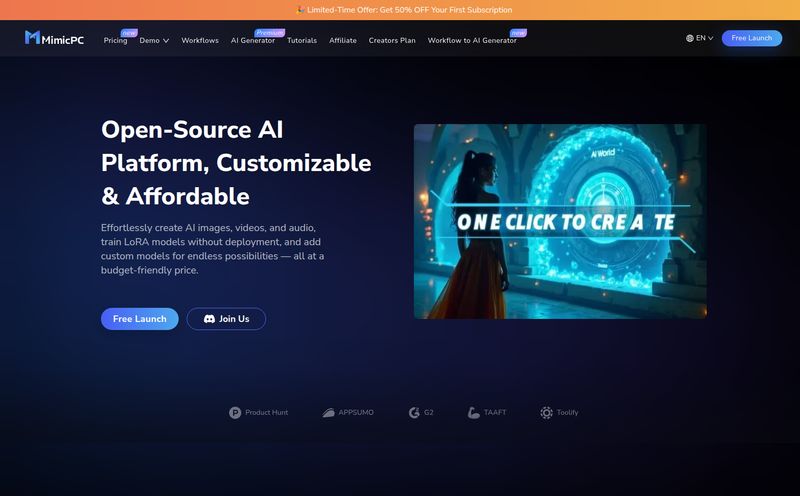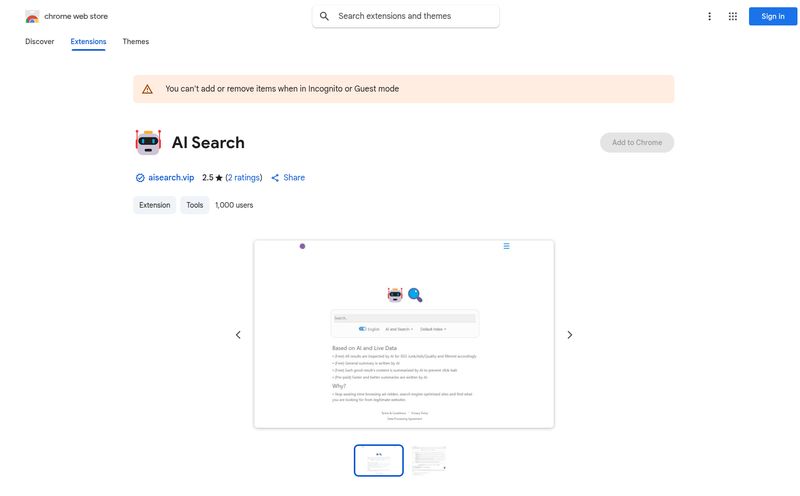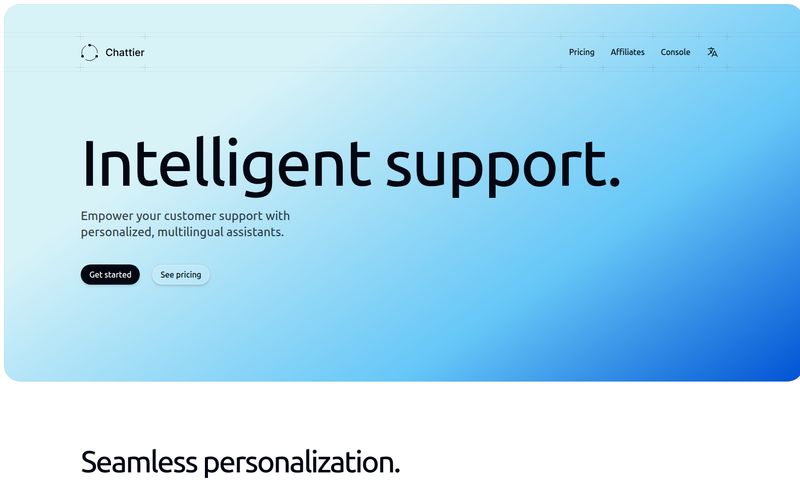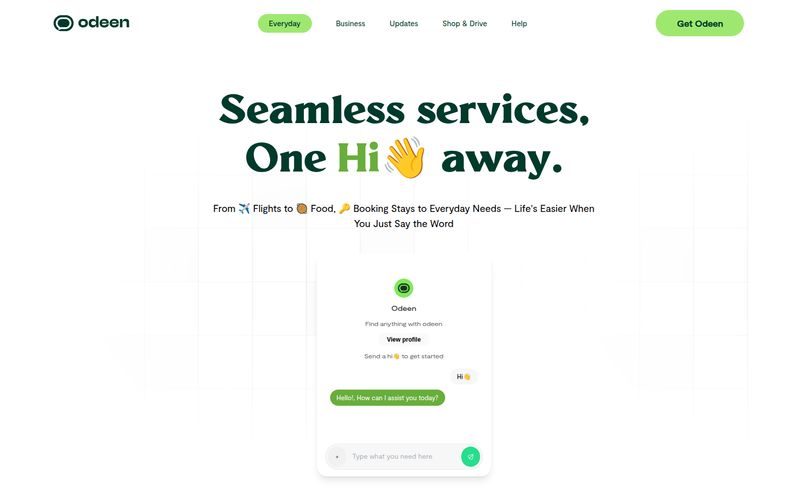For the last five years, it feels like the entire professional world has been whispering—or, more recently, shouting—the same thing: "You need to learn data." It doesn't matter if you're in marketing, finance, or even running a small coffee shop. The pressure to understand Python, to whip up a SQL query, or to make sense of a Tableau dashboard is immense.
As an SEO guy, I live and breathe data. Traffic, bounce rates, keyword rankings... it's all numbers. But for a long time, my toolset was, shall we say, traditional. Google Analytics, Ahrefs, and a whole lot of spreadsheets. The thought of learning to 'code' felt like trying to climb a mountain in flip-flops. Intimidating. Frustrating. Where do you even begin?
That's the exact question that platforms like DataCamp promise to answer. I've been hearing its name for years, and I've seen countless colleagues use it to pivot into data-heavy roles. But in a sea of online courses, from YouTube tutorials to massive open online courses, does DataCamp actually deliver on its promise? Or is it just another subscription in our ever-growing stack? Let's get into it.
What Exactly is DataCamp Anyway?
At its core, DataCamp is an online learning platform laser-focused on one thing: data skills. This isn't the place you go to learn watercolor painting or ancient history. It's a specialized hub for mastering the tools of the modern data professional. We're talking about the big three—Python, R, and SQL—plus essential visualization software like Power BI and Tableau.
But here's the hook, the thing that separates it from just watching a video lecture. DataCamp is built on a philosophy of "learn by doing." It's less like a lecture hall and more like a guided, interactive workshop. You watch a short instructional video, and then, boom—you're immediately dropped into a coding exercise right in your browser. No downloads, no complicated setup, just you and the code.
The "In-Browser" Magic: Why DataCamp's Approach Just Clicks
I can't overstate how big of a deal this is. My first attempt to learn Python on my own involved three hours of YouTube tutorials just on how to install it correctly and manage something called a 'virtual environment'. I almost gave up before I wrote a single line of code. It's a huge, invisible barrier that turns away so many aspiring learners.
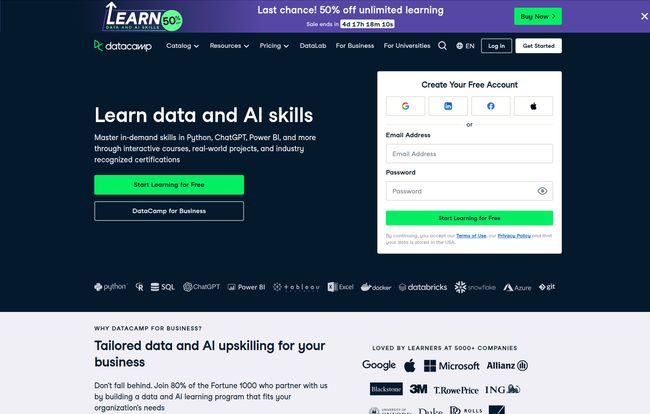
Visit DataCamp
DataCamp completely obliterates that barrier. You sign up, pick a course, and you're coding within minutes. The screen is typically split: instructions on one side, a console on the other. You type your code, hit 'Run,' and get instant feedback. Correct? Awesome, move on. Got it wrong? It gives you hints. This immediate feedback loop is like having a patient tutor who never gets tired of your questions. It's an incredibly effective way to build muscle memory and, more importantly, confidence.
A Look Inside the Course Library and Learning Paths
Okay, so the learning method is cool. But what can you actually learn? The library is pretty extensive, boasting over 490 courses. It's designed to take you from a complete novice to a job-ready candidate through carefully structured pathways.
Skill Tracks vs. Career Tracks
DataCamp cleverly organizes its content into two main types of paths. Skill Tracks are focused on mastering a specific technology. Think of things like "SQL Fundamentals," "Data Visualization with R," or "Python for Data Science." They are deep dives into one area, usually taking between 10-20 hours.
Career Tracks are the whole enchilada. These are comprehensive learning programs, like "Data Analyst with Python" or "Machine Learning Scientist," that bundle multiple courses and projects together. They provide a full curriculum, taking you from the basics all the way through to advanced topics needed for a specific job role. For anyone feeling lost and wondering, "What do I even need to learn?", these tracks are a godsend. They provide the roadmap so you can focus on the driving.
Real-World Projects and Certifications
Watching tutorials is one thing, but employers want to see what you can build. This is where DataCamp's projects come in. After you've learned a few skills, you can tackle a guided project—analyzing real-world datasets, like investigating Netflix movie ratings or historical UFO sightings (yes, really). It's a fantastic way to apply your knowledge and start building a portfolio.
They also offer certifications. Now, let's have a frank conversation about online certs. Is a DataCamp certification equivalent to a computer science degree from MIT? Of course not. But it is a verifiable signal to employers that you have a solid, practical foundation in a specific skill set. It shows initiative and proves you can pass a rigorous, timed exam. I see it as a powerful addition to your LinkedIn profile and resume, especially when you're just starting out.
Let's Talk Money: Breaking Down DataCamp's Pricing
Alright, the all-important question: what's this going to cost? The pricing structure is actually pretty straightforward, which I appreciate. No hidden fees or confusing tiers.
| Plan | Price | Key Features |
|---|---|---|
| Basic (Free) | Free | First chapter of every course, access to job board and professional profile. |
| Premium | $14/month (billed annually) | Full content library (490+ courses), all projects, certificates, and full career tracks. |
| Teams | $14/user/month (billed annually) | Everything in Premium, plus admin dashboard, progress tracking, and license management. |
The Free 'Basic' Plan: A Generous Test Drive
Honestly, the free plan is one of the best things about DataCamp. Getting the first chapter of every single course for free is a brilliant way to let you try before you buy. You can get a genuine feel for the teaching style and interactive platform without spending a dime.
The 'Premium' Plan: The All-Access Pass
This is where the real value is. For what amounts to the cost of a few fancy coffees a month, you get the keys to the entire kingdom. When you consider that a single, decent-quality course on other platforms can cost $50-$100, getting access to the whole library, plus projects and certifications, for $14/month is an incredible deal. It's a no-brainer if you're serious about learning.
The Good, The Bad, and The Nitty-Gritty
No platform is perfect, right? After spending a good amount of time on it and talking to others, here's my honest take.
The Stuff I Genuinely Like: The hands-on model is obviously the star of the show. The lack of setup friction is a close second. The content is structured logically, and the career tracks are a huge help for self-starters. And having a mobile app to review concepts or do a quick lesson while waiting in line is surprisingly useful. It makes learning feel less like a chore and more like a habit.
Where It Could Be Better: The main criticism I've seen—and I think its a fair one—is about depth. DataCamp is phenomenal for taking you from zero to sixty. It will make you proficient and job-ready. However, to become a true top-tier expert, a senior-level specialist, you'll eventually need to go beyond its ecosystem. You'll need to read documentation, build your own complex projects from scratch, and wrestle with problems that don't have neat, pre-packaged hints. But that's okay! Think of DataCamp as the ultimate launchpad. It gives you the rocket fuel and guidance to get into orbit; exploring deep space is the next step in your jorney.
So, Who is DataCamp Actually For?
I think it shines brightest for a few specific groups:
- The Absolute Beginner: If you've never written a line of code and the thought of the command line gives you hives, DataCamp is for you. It's the most welcoming and gentle introduction to the world of data you could ask for.
- The Career Changer: Are you a marketing manager who needs to pull your own SQL reports? A finance analyst who wants to automate Excel tasks with Python? DataCamp is your perfect upskilling partner. The career tracks are tailor-made for this exact scenario.
- The Professional 'Brusher-Upper': Maybe you learned R in college five years ago and are a bit rusty. DataCamp is a fantastic way to quickly get back up to speed or to pick up a new library for a specific project at work.
Who isn't it for? Probably senior software developers or veteran data scientists. If you're already building complex machine learning models for a living, you've likely outgrown the core curriculum, though you might still find value in a course on a new tool you haven't touched before.
The Final Verdict: Is DataCamp Worth Your Time and Money?
Yes. Unequivocally, yes. For its target audience, DataCamp is one of the best investments you can make in your career. It has democratized data education by making it accessible, affordable, and, most importantly, engaging. It removes the most intimidating parts of learning to code and replaces them with a supportive, interactive environment.
The hardest part of learning any new skill is just getting started. DataCamp doesn't just make it easy to start; it makes it fun to keep going. And in the world of online learning, that's a rare and valuable thing.
Frequently Asked Questions
Is DataCamp good for complete beginners?
Absolutely. It's arguably one of the best platforms for complete beginners. The in-browser coding environment and step-by-step guidance eliminate the usual setup headaches and make it very easy to get started.
What's the main difference between the Basic and Premium plans?
The Basic (Free) plan gives you access to the first chapter of every course, which is great for trying it out. The Premium plan unlocks everything: all chapters of all 490+ courses, guided projects, and the ability to earn professional certifications.
Can I get a job with a DataCamp certificate?
A certificate alone won't get you a job, but it's a powerful tool in your job-hunting arsenal. It proves to employers that you have a verified, foundational skill set. Combine a certificate with a portfolio of projects (which you can also build on DataCamp), and you become a much stronger candidate.
Is DataCamp's pricing worth it?
In my opinion, the Premium plan offers incredible value. For a low monthly fee (billed annually), you get access to a massive library of high-quality content that can directly lead to career advancement and higher earning potential. It's a very low-cost investment with a potentially huge return.
How long does it take to complete a career track?
This varies greatly depending on the track and your personal pace. Most career tracks are designed to be comprehensive and contain between 60 to 100 hours of content. If you dedicate a few hours each week, you could complete one in a matter of months.
